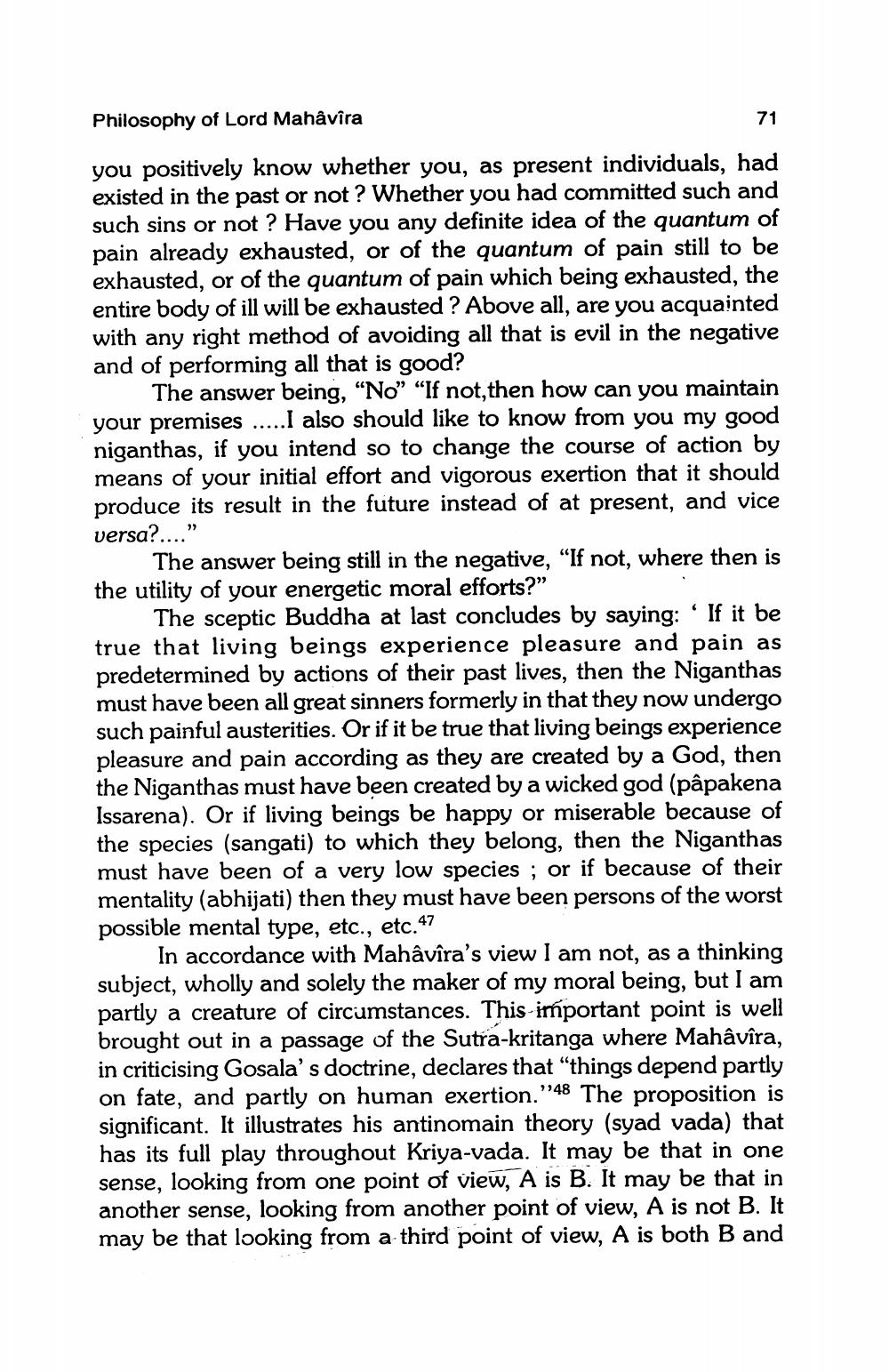________________
Philosophy of Lord Mahâvîra
you positively know whether you, as present individuals, had existed in the past or not? Whether you had committed such and such sins or not? Have you any definite idea of the quantum of pain already exhausted, or of the quantum of pain still to be exhausted, or of the quantum of pain which being exhausted, the entire body of ill will be exhausted? Above all, are you acquainted with any right method of avoiding all that is evil in the negative and of performing all that is good?
The answer being, "No" "If not, then how can you maintain your premises .....I also should like to know from you my good niganthas, if you intend so to change the course of action by means of your initial effort and vigorous exertion that it should produce its result in the future instead of at present, and vice versa?...."
71
The answer being still in the negative, "If not, where then is the utility of your energetic moral efforts?"
"
The sceptic Buddha at last concludes by saying: If it be true that living beings experience pleasure and pain as predetermined by actions of their past lives, then the Niganthas must have been all great sinners formerly in that they now undergo such painful austerities. Or if it be true that living beings experience pleasure and pain according as they are created by a God, then the Niganthas must have been created by a wicked god (pâpakena Issarena). Or if living beings be happy or miserable because of the species (sangati) to which they belong, then the Niganthas must have been of a very low species; or if because of their mentality (abhijati) then they must have been persons of the worst possible mental type, etc., etc.47
In accordance with Mahâvîra's view I am not, as a thinking subject, wholly and solely the maker of my moral being, but I am partly a creature of circumstances. This important point is well brought out in a passage of the Sutra-kritanga where Mahâvîra, in criticising Gosala's doctrine, declares that "things depend partly on fate, and partly on human exertion."48 The proposition is significant. It illustrates his antinomain theory (syad vada) that has its full play throughout Kriya-vada. It may be that in one sense, looking from one point of view, A is B. It may be that in another sense, looking from another point of view, A is not B. It may be that looking from a third point of view, A is both B and




